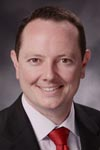JEFFERSON CITY, Mo. — On Monday night, after a long and often tense debate on “paycheck protection” legislation, House Republicans held a caucus meeting that lasted past midnight to discuss the party’s strategy on the controversial “Right-to-Work” bill.
While the two-thirds majority of the party often means wide-margin victories and broad consensus, RTW has divided the caucus like no other issue. With labor unions promising electoral retribution for supporters of RTW and Democrats desperately hoping to regain some seats in the Republican-controlled legislature, the party remains divided on RTW.

With a promised veto from Gov. Jay Nixon, putting the issue on the ballot is the only feasible avenue for the policy to become the law of the land. When paycheck protection gained only 83 votes in the House, some in the Capitol suggested RTW could be in danger, since paycheck legislation typically gets more support within the Republican caucus than RTW.
But, RTW supporter and House sponsor Eric Burlison, R-Springfield, says that assessment isn’t accurate.
“There are quite a few members of our caucus that are against paycheck protection but supportive of Right-to-Work,” Burlison said.
As Republicans eye the best avenue to passing a bill that leadership has dubbed a priority, some members are looking at compromises within the caucus to shore-up support for the measure.
Rep. Dave Hinson, R-St. Clair, voted for paycheck protection but says he’ll be against RTW unless his amendment is successfully attached. Hinson filed an amendment last week that he says closes the so-called “free rider loophole.”
Opponents of RTW say the law will allow non-union members to receive all the benefits of collective bargaining while never having to contribute dues or fees. Hinson seeks a fix by amending Burlison’s legislation to allow unions to collect dues or fees connected with disciplinary hearings. Under his amendment, workers would be given the option to select union representation — and pay the fees associated with it — even if they are non-union members.
“If this bill has the votes to pass, why wouldn’t I at least try to make it better public policy,” Hinson said. “I think this amendment would significantly improve the bill.”

Hinson said he was working with caucus attorneys to finalize the verbiage on his amendment and that he would “probably be recognized” to offer it on the floor. Hinson characterized Burlison as “supportive” of his idea. Burlison responded that he was “receptive,” to it, but also contended that there is no “free rider loophole.”
“I’m not going to close the door on his amendment,” Burlison said. “I’ll consider it, but I don’t think it’s something we have to do to get it passed, and I hope that he has a sincere amendment. I’d be disappointed if he’s trying to undo this bill.”
Burlison said that unions do not have a free rider problem and that case law supports member-only contracts for union benefits. He says it’s not really a problem.
Hinson’s amendment may attract some wary Republicans to the issue, but could also drive a wedge between supporters and the rest of the caucus who may perceive the amendment as a “poison pill.”
Neither lawmaker could foresee a vote on RTW within the next week, nor House leadership was not provided any specifics about when a vote might take place.
Collin Reischman was the Managing Editor for The Missouri Times, and a graduate of Webster University with a Bachelor of Arts in Journalism.



